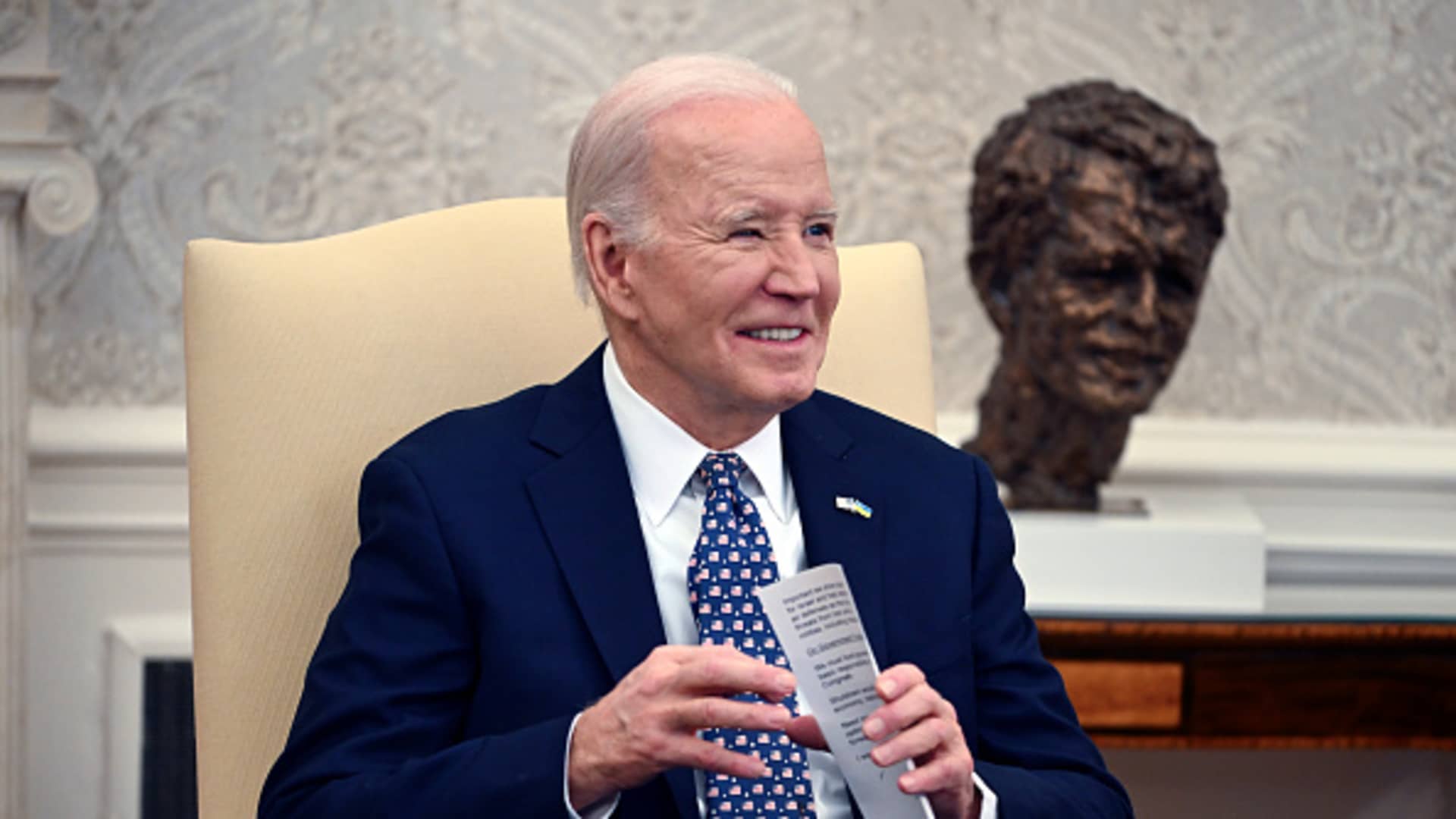U.S. President Joe Biden and Vice President Kamala Harris meet with (L-R) Senate Minority Leader Mitch McConnell (R-KY), House Speaker Mike Johnson (R-LA), Senate Majority Leader Chuck Schumer (D-NY), House Minority Leader Hakeem Jeffries (D-NY), on February 27, 2024 at the White House in Washington, DC.
Roberto Schmidt | Getty Images
President Joe Biden on Saturday signed Congress’ $1.2 trillion spending package, finalizing the remaining batch of bills in a long-awaited budget to keep the government funded until Oct. 1.
Almost halfway into the fiscal year, the president’s signature ends a months-long saga of Congress struggling to secure a permanent budget resolution and instead passing stopgap measures, nearly averting government shutdowns.
“The bipartisan funding bill I just signed keeps the government open, invests in the American people, and strengthens our economy and national security,” Biden said in a Saturday statement. “This agreement represents a compromise, which means neither side got everything it wanted.”
The weekend budget deal slid in just under the wire before the Friday midnight funding deadline, as has been typical this fiscal year with eleventh-hour disagreements derailing near-complete deals.
The Senate passed the budget in a 74-24 vote at roughly 2 a.m. ET Saturday morning, technically two hours after the deadline due to last-minute disagreements. However, the White House said that it would not begin official shutdown operations since a deal had ultimately been secured and only procedural actions remained.
The House passed its own vote Friday morning after a week of scrambling to reconcile a lingering sticking point: funding for the Department of Homeland Security, which the White House took issue with last weekend. The White House’s qualms delayed the negotiation process further, just as lawmakers were preparing to release the legislative text of the budget proposal.
This trillion-dollar tranche of six appropriation bills will fund agencies related to defense, financial services, homeland security, health and human services and more. Congress approved $459 billion for the first six appropriations bills earlier in March, which related to agencies that were less partisan and easier to negotiate.
With the government finally funded for the rest of the fiscal year, House Speaker Mike Johnson, R-La., has cleared his plate of at least one looming issue.
But in so doing, he may have created another.
Hours before the House passed the spending package Friday morning, hardline House Republicans held a press conference to lambast the bill. Moments after the House narrowly passed the bill, far-right Georgia Republican Rep. Marjorie Taylor Greene filed a motion to oust Johnson.
If ousting a House speaker for budget disagreements feels like a familiar story, that’s because it is.
In October, after former Speaker Kevin McCarthy struck a deal with Democrats to avert a government shutdown, the House voted to remove him, making him the first Speaker in history to be removed from that position. Johnson has been trying to appease the hardline Republican wing of the House, called the Freedom Caucus, to avoid meeting a similar fate.





















Discussion about this post